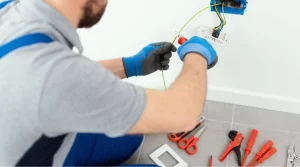Employee drug screening is crucial for maintaining workplace safety and productivity. However, conducting these screenings at home presents unique challenges that employers must address. This article delves into the common challenges faced in employee drug screening at home and provides strategies to overcome them.
Overcoming Common Challenges in Employee Drug Screening at Home
From ensuring accurate and reliable test results to maintaining confidentiality and addressing employee resistance, employers can proactively tackle these challenges through clear instructions, education, and the use of remote monitoring technologies. By doing so, they can effectively conduct drug screenings while upholding accuracy and privacy.
Key Takeaways
- Adherence to proper procedures is crucial in employee drug screening at home.
- Privacy concerns need to be addressed to ensure employees feel comfortable during the screening process.
- Ensuring sample validity is essential to obtain accurate results in employee drug screening at home.
- Clear instructions and education should be provided to employees to help them understand the process and requirements of at-home drug screening.
Overcoming Home Drug Test Challenges
Navigating home drug tests presents hurdles despite the advantages of saliva drug tests. Ensuring accuracy and preventing tampering can be challenging in unsupervised environments. To address this, adhere to strict collection guidelines, maintain chain of custody, and use reliable kits with tamper-evident features. Educate employees about the importance of following instructions precisely for accurate results. Utilize professional services for complex cases and invest in high-quality, certified testing kits. Leveraging the advantages of saliva drug tests, such as non-invasiveness and quick detection, while implementing stringent protocols, aids in overcoming challenges for effective home-based screening.

The Importance of Employee Drug Screening Knowledge
Employee drug screening knowledge is a crucial component in maintaining a safe and productive work environment. It ensures that employees are fit to perform their duties without impairment from drug use, which can jeopardize their safety and the safety of others.
By having a thorough understanding of the drug screening process, employees can make informed decisions about their behavior both inside and outside of the workplace. They can also be aware of the consequences of drug use, such as the potential for disciplinary action or termination.
Additionally, employee drug screening knowledge promotes a sense of fairness and accountability among staff, as everyone is held to the same standards.
Ultimately, a well-informed workforce contributes to a harmonious work environment where productivity and well-being are prioritized.
Common Challenges in Employee Drug Screening at Home
Employee drug screening at home presents several common challenges that employers and employees need to navigate to ensure accurate and reliable results. These challenges include:
- Adherence to proper procedures: Conducting drug screening at home requires strict adherence to protocols to avoid errors or tampering. Employers need to educate employees on the correct collection and handling techniques to maintain the integrity of the samples.
- Privacy concerns: Unlike traditional workplace drug screening, conducting tests at home may raise privacy concerns for employees. Employers should address these concerns by providing clear guidelines on how the samples will be collected, stored, and shared only with authorized personnel.
- Ensuring sample validity: With remote drug screening, there is a risk of sample substitution or adulteration. Employers should consider implementing measures such as live video monitoring during sample collection or using tamper-evident seals to maintain sample integrity and prevent fraudulent practices.
Understanding Drug Testing Methods for Employee Screening
To gain a comprehensive understanding of drug testing methods used for employee screening, it is important to familiarize oneself with the various techniques employed in this process.
Drug testing methods for employee screening typically involve the analysis of biological samples such as urine, blood, saliva, or hair. Urine testing is the most common method used, as it is non-invasive and provides a reliable detection window for recent drug use.
Blood testing, on the other hand, is more invasive and is often used in post-accident situations or when immediate drug detection is required.
Saliva testing is gaining popularity due to its ease of collection and shorter detection window.
Hair testing is a less common method but offers a longer detection window, making it useful for detecting habitual drug use.
Each method has its advantages and limitations, and employers should choose the appropriate method based on their specific needs and requirements.
Tips for Overcoming Challenges in Employee Drug Screening
One important aspect of successfully navigating employee drug screening is being prepared to address the common challenges that may arise during the process. To help you overcome these challenges, here are three tips to consider:
- Clear communication: Ensure that your employees are aware of the drug screening process and its importance. Communicate the purpose of the screening, the procedures involved, and the consequences of non-compliance. By fostering open and transparent communication, you can alleviate any concerns or misunderstandings.
- Provide support: Some employees may feel anxious or apprehensive about the drug screening process. Offer support by providing resources and information on how to prepare for the screening. Additionally, consider implementing an employee assistance program that offers counseling or guidance for those struggling with substance abuse.
- Streamline the process: Make the drug screening process as efficient and convenient as possible. Provide clear instructions on how to collect and submit samples, and ensure that the necessary equipment is readily available. Consider utilizing technology to streamline the process, such as offering online scheduling or remote sample collection options.
Best Practices for Effective Employee Drug Screening
For effective employee drug screening, it is crucial to implement best practices. These practices ensure that the screening process is accurate, efficient, and fair.
One of the first best practices is to establish clear policies and procedures regarding drug screening. This includes outlining the reasons for screening, the types of tests to be conducted, and the consequences of a positive result. Additionally, it is important to communicate these policies to employees and provide them with the necessary information and resources.
Another best practice is to use reliable and validated drug testing methods. This helps to ensure accurate results and reduce the risk of false positives or negatives.
It is also important to maintain confidentiality throughout the screening process, protecting the privacy of employees.
Finally, regular training and education for those involved in the screening process can help ensure consistency and adherence to best practices.
Frequently Asked Questions
Are There Any Legal Requirements for Employee Drug Screening?
Yes, there are legal requirements for employee drug screening.
These requirements vary depending on the jurisdiction and industry.
Generally, employers must comply with applicable federal, state, and local laws, as well as any collective bargaining agreements or employment contracts.
It is important for employers to understand and adhere to these legal requirements to ensure a fair and legally compliant drug screening process.
Failure to do so can result in legal consequences and potential harm to the employer’s reputation.
What Are the Consequences for Employees Who Fail a Drug Screening?
The consequences for employees who fail a drug screening can vary depending on the company’s policies and the nature of the job. In some cases, failing a drug test can result in termination or disciplinary action, while in others it may lead to a requirement for rehabilitation or counseling.
It is important for employees to be aware of their company’s drug screening policies and to understand the potential consequences of failing a drug test. This knowledge can help them make informed decisions and avoid any negative outcomes.
Can an Employee Refuse to Take a Drug Test?
Yes, an employee can refuse to take a drug test, but there may be consequences depending on company policy, industry regulations, and employment contracts. Refusal to undergo testing can result in disciplinary action, including termination of employment.
It is important for employees to understand their rights and responsibilities regarding drug testing, as well as any legal or contractual obligations they may have.
Employers should also ensure that their drug testing policies are clear, fair, and compliant with applicable laws and regulations.
How Accurate Are At-Home Drug Testing Kits?
At-home drug testing kits have become increasingly popular, but many people wonder about their accuracy. The accuracy of these kits can vary depending on the brand and the specific test being used. While some tests claim to be highly accurate, it is important to keep in mind that no test is 100% foolproof.
Factors such as improper usage or handling of the test can also impact the accuracy of the results. It is always recommended to consult with a healthcare professional for a more accurate and reliable drug test.
Are There Any Privacy Concerns With Employee Drug Screening at Home?
Yes, there can be privacy concerns with employee drug screening at home.
While conducting drug tests at home may seem convenient, it raises questions about the privacy of the employee’s personal information and the accuracy of the results.
Employers need to ensure that proper protocols are in place to protect the confidentiality of the employee’s test results and to address any concerns related to privacy.
Implementing clear guidelines and utilizing reputable drug testing methods can help alleviate these concerns and ensure a fair and confidential screening process.
Conclusion
In conclusion, employee drug screening at home presents unique challenges such as maintaining accuracy and confidentiality. Additionally, it requires addressing employees’ lack of knowledge and understanding.
However, employers can effectively overcome these challenges by providing clear instructions, utilizing remote monitoring technologies, and implementing strict protocols.
By taking these steps, employers can ensure a safe and productive workforce. It is crucial for employers to proactively address these challenges to maintain workplace safety and integrity.
You may also like to read:
Balancing Work Home And Recovery: A Practical Guide for Men






